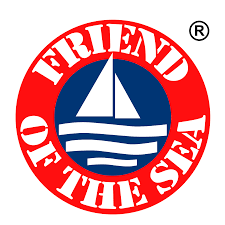
The hatchery sector plays a major in the whole industry towards a more efficient, profitable, and sustainable aquaculture.
“Aquaculture has the power to feed the world, but the only way to get there is through sustainable development. This means doing good and doing it well - and staying committed for the long haul. But we can’t do it alone. We invite you to spread the word and support our efforts to create sustainable solutions through aquaculture.”

To expand aquaculture sustainably, the industry must reduce its reliance on fish meal and fish oil in grow-out feeds by at least 50%. In hatcheries on the other hand, the milestone is a substantial reduction in the need for resources such as artemia, water and land, while reducing antibiotics and improving the quality of offspring.
The hatchery sector plays an essential role in making aquaculture more efficient by supporting aquaculture farms with healthy and robust offspring, which is the cornerstone of successful and environmentally friendly crops to produce best quality seafood.
Our commitment

A commitment to sustainable aquaculture has been at the core of the Molofeed vision since day one. Ingrained in our DNA, we continually strive to find new ways to make our hatchery feeds more effective and reliable.
Our goal is to create sustainable solutions, leveraging circular economy in a way that increases the quality post-larvae and fingerlings.
By carefully selecting ingredients and developing novel applications for novel materials, we are constantly evolving the application of our patented micro-encapsulation technology to increase efficiency and make our products more profitable for hatcheries.
For us, sustainable aquaculture is not a trend or a fad; it's the only way forward.

Molo’s Alignment with Goals of
United Nations 2030 Agenda for
Sustainable Development

The United Nations Sustainable Development Goals are a universal call to action to end poverty, protect the planet, and improve the lives of people across the globe. The 17 goals were adopted by all UN Member States in 2015 as part of the 2030 Agenda for Sustainable Development which set out a 15-year plan to achieve these goals. Though progress has been made, as we enter the core of the decade, ambitious action must take place to meet the goals by 2030.
MOLO is in alignment with the goals set out in the agenda, and we urge our suppliers, investors, partners, and customers to join us in this universal effort for the betterment of the planet and all of its inhabitants.
We encourage you to read the 2030 Agenda for Sustainable Development and take a look at all 17 Goals to see where your efforts might be best aligned. While we support all of the goals set forth, we are joining efforts to impact goals 5, 7, 8, 9, 12, 14 and 17.
4
